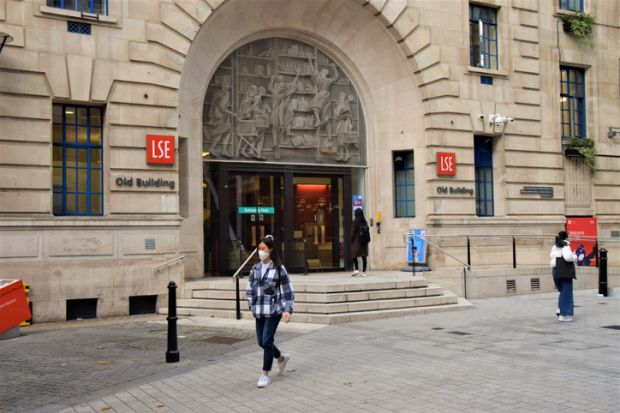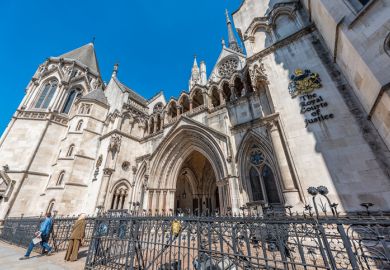It is “illogical” that shops, gyms and tourist attractions will reopen in England next week but 1 million students will remain unable to return to university campuses, vice-chancellors have said.
Universities UK has written to Boris Johnson seeking “urgent clarification” on the plan for a full return to face-to-face teaching after the prime minister left this out of the next easing of coronavirus restrictions, due to take place on 12 April.
President Julia Buckingham and chief executive Alistair Jarvis write that the list of sectors reopening next week – also including spas, zoos and hairdressers – is “extensive”, and that people will also be able to take self-catering holidays anywhere in England.
“It therefore seems illogical that students are not allowed to return to their self-catering accommodation and resume their studies in Covid-safe university facilities, particularly at this crucial time of the academic year,” the pair write. “This is another blow for those students who have been studying online since early December 2020.”
Currently, only students on practical and priority courses are receiving in-person tuition. Vice-chancellors had been pushing for students on all courses to be allowed to return to face-to-face teaching from 12 April, and the government had promised to give at least a week’s notice of any changes.
But updated guidance published after a government briefing on 5 April leaves the existing arrangements unchanged. Ministers had promised to give an update by the end of the Easter holidays, and some universities’ summer terms are due to start on 12 April. Others remain on a break until later in the month.
In the letter, Professor Buckingham and Mr Jarvis ask Mr Johnson to “confirm how and why the decision was taken to exclude higher education student returns from Step 2 of the road map, and to publish the government’s risk assessment underpinning this decision”, and to “address the current communications vacuum as a matter of urgency and publicly explain the government’s decision to students and parents, including information on when they expect students will be able to return”.
They ask what action the government will take to support student well-being, after research found that two-thirds of UK students said their mental health had worsened since the start of the academic year, and to support graduates’ employability, “as many will miss out on in-person career development activities planned by their university for the summer term”.
Universities, which estimate that as many as half of England’s 2.1 million higher education students are still being taught fully online, have expressed fears that the full reopening of campuses could be pushed back to mid-May or beyond.
This would coincide with the start of exam season, so students returning at that point would be unlikely to receive significant amounts of in-person teaching, although UUK said that most institutions planned activities and extended opening of some facilities “which will be available and of benefit to students even if they are unable to return until May”.
In the letter, Professor Buckingham and Mr Jarvis say that universities “have been cooperative and done everything we have been asked by government”, such as running asymptomatic testing sites and investing in infection control.
“Our staff have worked incredibly hard to keep students learning and progressing over the past year and our students have behaved responsibly and shown resilience during a period of great uncertainty. The UK government owes them a clear explanation about why decisions have been taken and how students and universities will be supported,” the pair write.
Unions have said courses should be taught online until the end of the academic year wherever possible to prevent the spread of Covid-19.
A Department for Education spokeswoman said that the government was “committed to getting all students back into university as soon as the public health situation allows”.
“We will be reviewing options for the timing of the return of all remaining students by the end of the Easter holidays. Decisions will take into account the need to protect progress across the wider road map out of the pandemic, including the spread of the virus in communities and pressures on the NHS,” she said.
Register to continue
Why register?
- Registration is free and only takes a moment
- Once registered, you can read 3 articles a month
- Sign up for our newsletter
Subscribe
Or subscribe for unlimited access to:
- Unlimited access to news, views, insights & reviews
- Digital editions
- Digital access to THE’s university and college rankings analysis
Already registered or a current subscriber? Login








